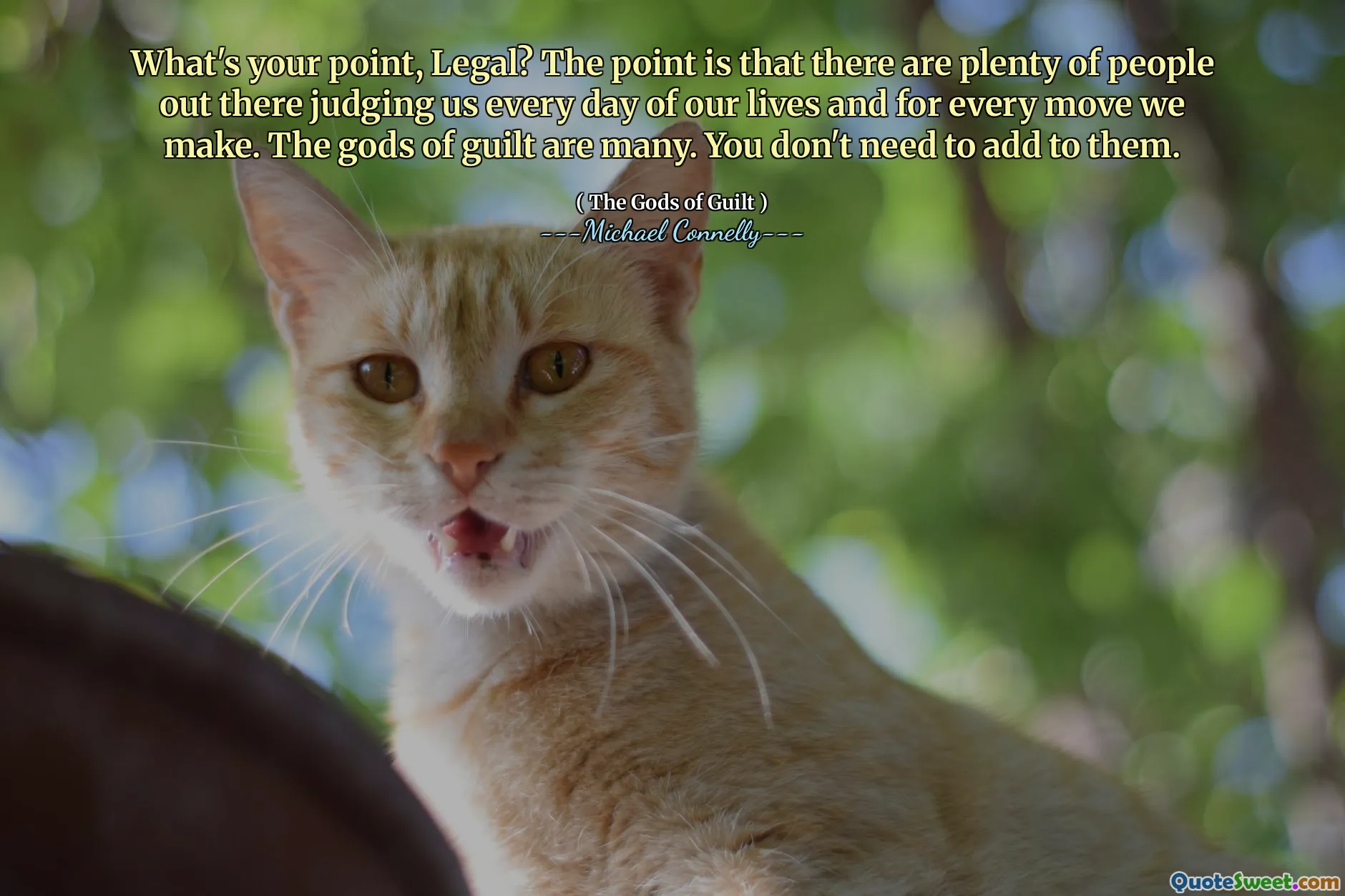
What's your point, Legal? The point is that there are plenty of people out there judging us every day of our lives and for every move we make. The gods of guilt are many. You don't need to add to them.
This quote delves into the pervasive nature of judgment and guilt that individuals face daily. It underscores how society, in many forms, continually scrutinizes our actions, thoughts, and decisions, often leading to an internal battle with feelings of guilt and self-doubt. The mention of "the gods of guilt" serves as a powerful metaphor, suggesting that these judgments are almost divine in their omnipresence and authority, influencing our behaviors and perceptions of ourselves. It raises compelling questions about the importance we place on external judgment versus internal integrity, prompting us to evaluate the extent to which guilt is externally imposed or internally cultivated.
From a personal perspective, the quote encourages a reflection on how much weight we give to the opinions of others. In a world saturated with social media and constant connectivity, the tendency to seek approval or fear condemnation can easily overshadow our sense of self. Acknowledging that "there are plenty of people out there judging us" can be both empowering and daunting — empowering if it fosters self-awareness and authenticity, and daunting if it leads to conforming out of fear.
The phrase "You don't need to add to them" reminds us that while external judgment is unavoidable, we have control over how much it influences us. It advocates for personal resilience and inner peace, emphasizing that not all judgments are worth internalizing. Rejecting unnecessary guilt enhances mental well-being, allowing us to focus on self-improvement instead of external expectations. Ultimately, the quote resonates as a call for mindfulness in how we interpret the world's judgments and stresses the importance of self-acceptance amidst societal pressures.
—Michael Connelly, (The Gods of Guilt)







